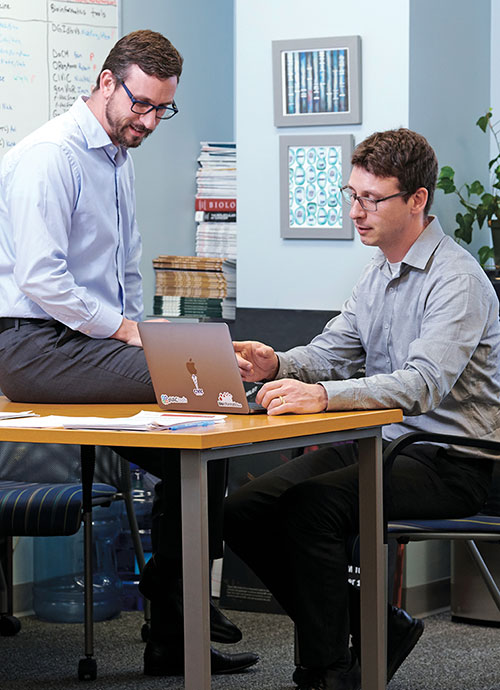Cancer genomics database recognized as global biodata resource
CIViC database connects cancer mutations to possible treatments

Malachi Griffith (left) and Obi Griffith
A vast database of cancer genomics knowledge started by Washington University scientists has been named a Global Core Biodata Resource by the Global Biodata Coalition. Led by twin brothers Malachi Griffith, PhD, and Obi Griffith, PhD, both associate professors of medicine, the CIViC “knowledgebase” helps match genetic mutations driving a patient’s cancer growth with possible treatments that target those mutations.
Supported by the National Institutes of Health (NIH), CIViC stands for Clinical Interpretation of Variants in Cancer. The Griffiths, also research members of Siteman Cancer Center at Barnes-Jewish Hospital and Washington University School of Medicine, have compared CIViC to the online encyclopedia Wikipedia, which is also maintained and updated by volunteers. Though anyone can contribute to CIViC, experts in the field serve as editors, curating data that is incorporated into the system.
According to the coalition, a Global Core Biodata Resource “is of fundamental importance to the wider biological and life sciences community and the long-term preservation of biological data.” CIViC is one of 37 resources named to the inaugural list of Global Core Biodata Resources, alongside other critical resources such as ClinGen, Ensembl, Gene Ontology, gnomAD, the UCSC Genome Browser, and others, all of which are free and open to the public, used extensively worldwide and considered authoritative in their respective fields.






